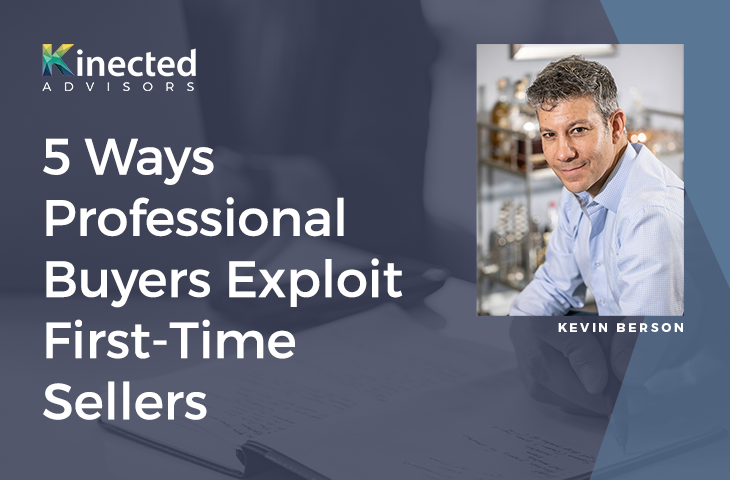I recently spoke with three business owners who received unsolicited offers. All three sellers thought the offers were acceptable and asked me to review them. What did I find? Not surprisingly, all three buyers ran a few plays from the “taking advantage of first-time sellers” playbook.
1. Lure Sellers with a Large Headline Number
Buyers ingratiate themselves to sellers by offering a significant valuation or a high EBITDA multiple along with the promise of a “quick and painless” close. This is classic misdirection. The seller should focus only on the amount of after-tax cash they’ll receive at closing, as nothing else is guaranteed.
In these cases, all three buyers offered most of the consideration in earn-outs and shares of the acquiring company rather than cash. Sellers are advised to be comfortable with the amount of cash they receive at closing, as all other types of consideration carry far more risk.
2. Offer Significant Consideration in an Earn-Out
What’s the downside of taking the consideration in earn-outs? Earn-outs, when structured fairly, bridge the gap between buyer and seller expectations. To receive earn-out payments, sellers need to meet certain predefined goals (revenue, gross profit, or EBITDA) over several years before becoming eligible to receive the additional consideration.
However, earn-outs can be challenging and contentious, because once the seller no longer owns the business, they lack control. Buyers may add costs or allocations, making earn-outs far more difficult for the seller to achieve than expected.
3. Sprinkle in Shares of the Acquirer’s Stock
Stock can be tremendously valuable if the buyer’s company performs well and has a liquidity event. However, sellers offered shares of buyer stock should realize these shares can be illiquid, difficult to value, carry limited voting rights, and may be subject to lock-out periods and tax implications.
4. Include Excess Net Working Capital (NWC) in the Valuation
Net Working Capital (NWC) is one of the most misunderstood aspects of M&A transactions. A business should be sold with sufficient NWC or “gas in the tank” for the buyer to operate post-closing. However, many business owners are not used to measuring NWC and can fall prey to a buyer’s request to include excess NWC, effectively transferring value to the buyer.
5. Tie Up Seller in Extended Exclusivity
All three offers lacked a timeline to complete diligence. This is a trap for the seller. When buyers know they’re not competing against other buyers, they lack the incentive to move quickly. In fact, extended time benefits the buyer, as prolonged diligence likely provides them with opportunities to discover reasons to reduce their offer. The buyer also hopes the seller will agree to concessions to avoid starting the process over with new buyers.
How Do Sellers Avoid These Traps?
The surefire way to maximize value is to have an experienced M&A advisor run a process to confidentially market the business to a broad buyer pool, creating competition and keeping the process moving. The advisor’s network of proven deal professionals can help optimize the outcome for the seller.
Before accepting an unsolicited offer, think about how many companies you’ve successfully sold. Most business owners get one chance to sell their business. Yet most buyers are experienced professionals who acquire companies for a living. Who has the upper hand — you, or the buyer who’s built a career purchasing companies on the cheap?
As you consider selling your business, we encourage you to speak with an experienced M&A advisory firm that can increase the odds of your transaction closing successfully. Kinected Advisors has an 85% success rate in our transactions, well above the 20–30% industry average. We would love to speak with you about getting you the best possible deal for your business.



